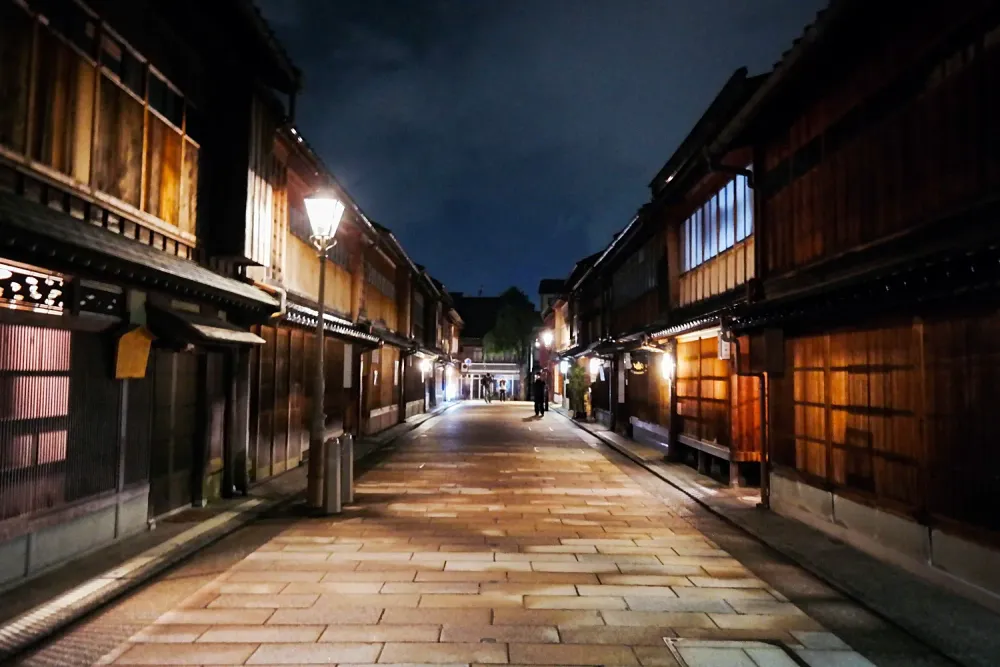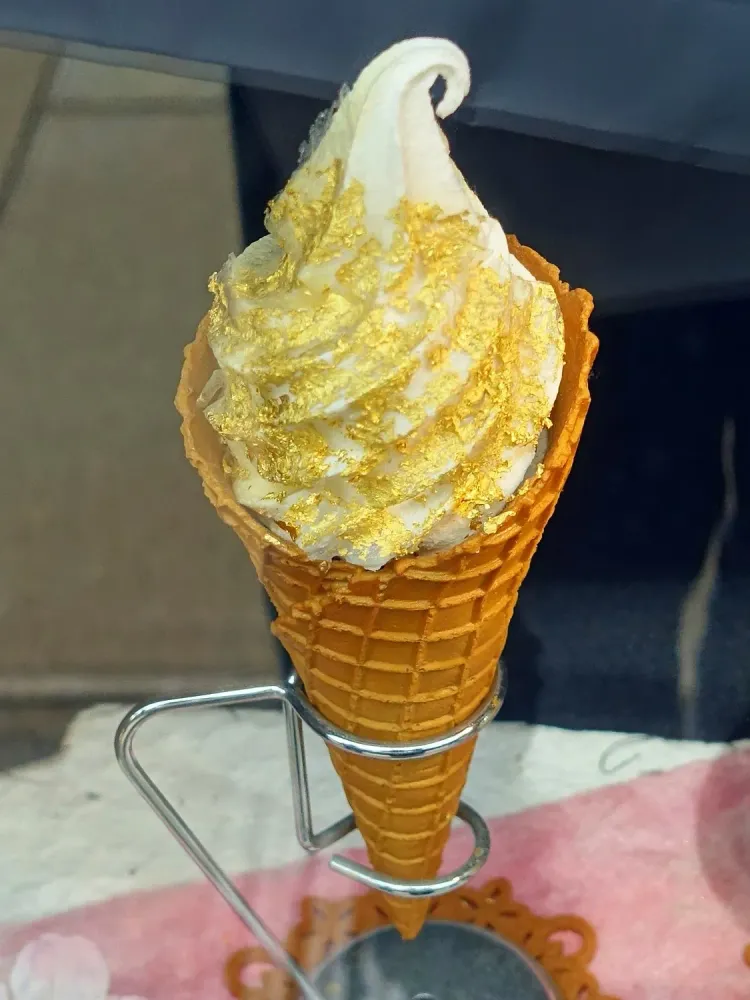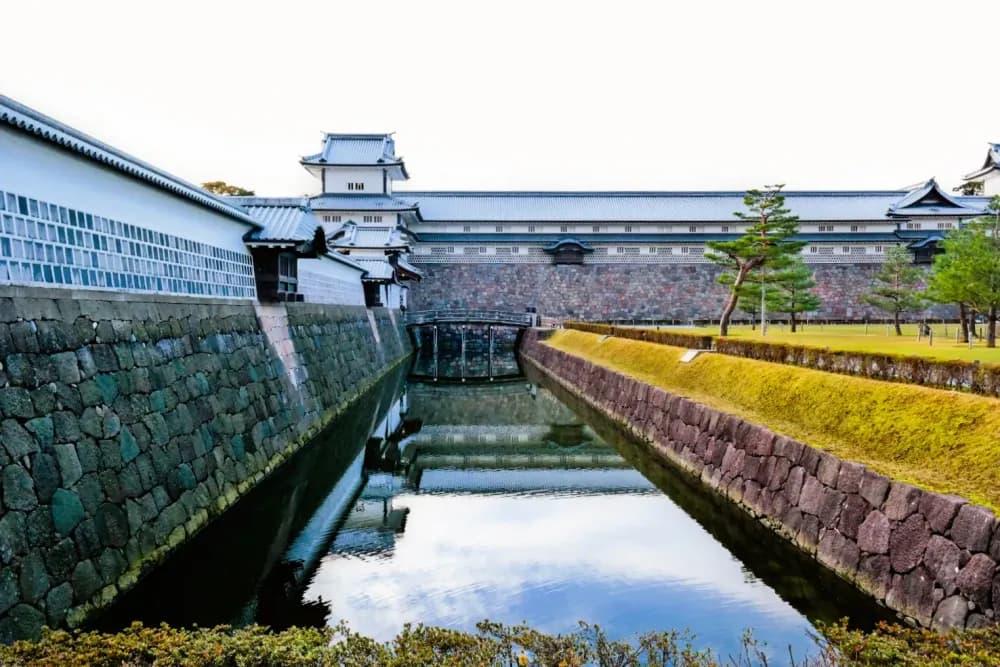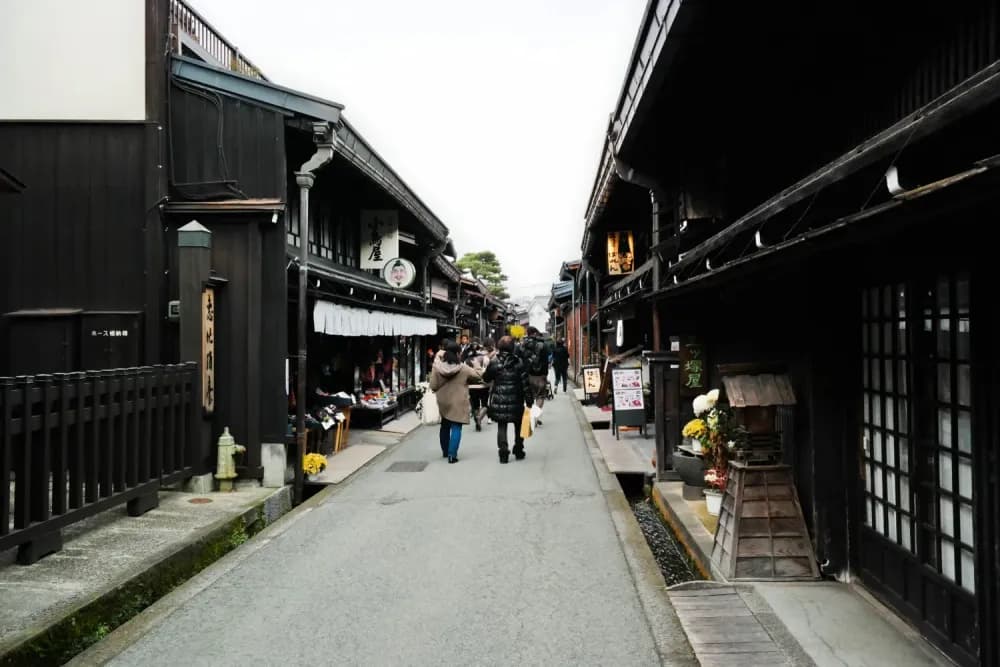Kanazawa Travel Guide
Heart of Hokuriku with Beautiful Traditional Districts and Fresh Seafood
Kanazawa is one of the best cities for visitors looking to get a glimpse of traditional Japan. Those looking to get a taste of old Japan can check out the Higashi Chaya District (ひがし茶屋街, Higashi Chaya Machi), a preserved teahouse area, Kenrokuen Garden (兼六園), one of Japan’s Three Great Gardens (日本三名園, Nihon San-mei-en), Nagamachi (長町武家屋敷跡, Nagamachi Bukei Yashiki Ato), an old samurai residence district, and Ninjadera (忍者寺), an interesting temple fitted with secret doors and traps. Art buffs will want to check out the 21st Century Art Museum (金沢21世紀美術館, Kanazawa Nijūichi-seiki Bijutsukan), and everyone should definitely check out Ōmichō Market (近江町市場, Omichō-shijō), a popular seafood market with plenty of street food.
Nature
Culture
Gourmet
Volume
Beautifully preserved traditional townscapes
Plenty of fresh seafood
Plenty of desserts
Has one of Japan's Top 3 Gardens
Local Specialties
のどぐろ
Nodoguro
Nodoguro is considered to be one of the most luxurious types of fish and is thought to be one of the best types of whitefish with its fatty meat and rich taste.
ブリ
Buri
Buri is the younger version of Hamachi (はまち, Yellowtail) and is usually caught in the wild in the colder waters of the Sea of Japan (日本海, Nihon-kai) during winter seasons.
ズワイガニ
Zuwaigani
Also known as Snow Crab, Zuwaigani can only be fished from November to March, and can be found all over local seafood markets. It’s commonly eaten raw and is popular for its naturally sweet meat.
金沢カレー
Kanazawa Curry
Kanazawa has its own take on Japanese curry, known as Kanazawa Curry, it focuses on bringing out the thickness and richness of the curry. Usually coming in a dark brown sauce, and topped with a crispy tonkatsu (とんかつ pork cutlet) on top.
+ See More
金沢おでん
Kanazawa Oden
While oden (おでん) is commonly known as a winter dish, it’s served in Kanazawa all-year round. While many oden ingredients are typically processed, like kamaboko (蒲鉾), Kanazawa Oden uses fresh local seafoods like kani (カニ, Crab) and baigai (バイ貝, Whelk).
金スーイツ
Gold Leaf Desserts
In Kanazawa, you can find desserts like soft-serve that come with gold leaf sprinkled on top. Kanazawa is actually Japan’s top producer of gold leaf, a small foil-like pieces of gold that are usually used to decorate traditional buildings with a gold-like color.
Popular Destinations
A great place to start the day is on the bustling alleys of Ōmicho Market, also known as Kanazawa’s kitchen. This market has been operating for over 300 years since 1721, and features over 300 shops. You can find fresh seafood through out the market, and some shops offer freshly shucked oysters or scallops to be eaten right there on the spot.
+ See More
The Higashi Chaya District is one of the best neighborhoods to explore in Kanazawa, with its traditional ambience, and wide variety of shops and restaurants. This district filled with geisha-ya (芸者屋, Geisha House) that have a beautiful traditional appearance, a two-storey building with a wooden lattice structure outside the door known as the kimisuko (木虫籠), and tatami (畳) guest rooms on the second floor.
+ See More
The Nagamachi district was formerly home to samurai (侍) and their families during the Edo Period (1603-1867, 江戸時代, Edo-jidai). A stark contrast to the wide open alleys and lined-wooden buildings of the Higashi Chaya District, the Nagamachi district consists of narrow alleys lined with earthen walls, and private gates to residences. There is also a beautiful water canal that flows alongside the road just outside the entrance to many of the samurai residences.
+ See More
One of Japan's Three Great Gardens (日本三名園, Nihon San-mei-en), Kenrokuen was named for the six (六, Roku) attributes of a perfect landscape: spaciousness, seclusion, artifice, antiquity, waterways, and panoramas. The garden was built over 200 years under the Maeda Clan (前田氏, Maeda-shi) from the 1600s to the 1800s. There is a simple beauty to the garden, from its expansive ponds, simple streams, beautiful trees and teahouses.
+ See More
Itineraries
Getting Around
Many of Kanazawa's attractions are actually located within walking distance of each other. The city is primarily served by buses, and there are no subways or trains that run through the city other than at Kanazawa Station.
Many of the cities buses begin at Kanazawa Station, and the most convenient is the Kanazawa Loop Bus which starts from Kanazawa Station and goes pass all the major attractions, with both left and right loop buses going in different directions.
Apart from Ninjadera (忍者寺) and the Higashi Chaya District (ひがし茶屋街, Higashi Chaya Machi), you can easily walk between the other attractions in less than 15 minutes.
Getting There
© 2023 Ki Creative. All Rights Reserved.
Due to changing circumstances, readers are advised to do their own additional research. All information on this site is purely for reference only.
Privacy















